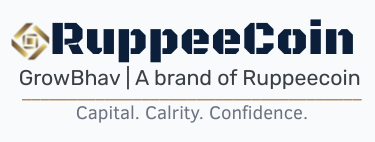Personal Finance: The Tug of War Between Tradition and Innovation
It was a humid Sunday afternoon in Jaipur. Ramesh uncle was sipping chai and carefully flipping through his worn-out LIC policy papers, while his 28-year-old nephew Aryan tapped away on his mobile, rebalancing his mutual fund portfolio on an app. Two generations. Two philosophies. One shared goal: financial security. The Traditional Way – Slow and Steady Ramesh uncle believed in what most Indians from his era did: Fixed Deposits for "safety" LIC for "guaranteed returns" Gold as a "family asset" Real estate as the "ultimate investment" His mantra was simple: If it's not tangible, it’s not trustworthy. And honestly, for years, it worked. He avoided market volatility, got stable returns, and even managed to pay for his children's education and marriage through disciplined saving. But here's the twist—stability came at a cost. The returns, when adjusted for inflation, barely grew. His portfolio lacked liquidity. And he missed opportunities that could have accelerated his wealth creation. The Innovative Way – Click, Invest, Repeat Aryan, on the other hand, was a digital native. SIPs in index funds Emergency corpus in liquid funds UPI-based micro-investments Tracking net worth on an app He wasn’t just saving — he was growing. Compounding wasn’t a concept he read in a textbook — it was his daily reality. He wasn’t just earning returns — he was building wealth. And while his uncle waited for annual interest certificates, Aryan got real-time dashboards, performance alerts, and even AI-generated tips. Still, Aryan wasn’t reckless. He understood risk, diversified smartly, and took advice. So, who was right? Finding Balance – The Hybrid Mindset The truth? Both approaches have merit. Traditional instruments offer emotional comfort and capital safety. Innovative methods provide scalability, accessibility, and higher returns. The magic lies in combining both. “Invest like your grandparents for stability, but think like your kids for growth.” For example: Use fixed deposits for short-term goals, but mutual funds for long-term ones. Buy gold digitally, not as jewellery. Opt for term insurance instead of traditional endowment policies. Use technology not just to invest, but to learn. The Verdict Personal finance is no longer about how much you earn — it’s about how smartly you manage what you earn. Whether you are sipping chai with Ramesh uncle or tracking NAVs with Aryan — just remember: Money doesn’t grow in tradition or technology alone — it grows in understanding.
PERSONAL FINANCE


